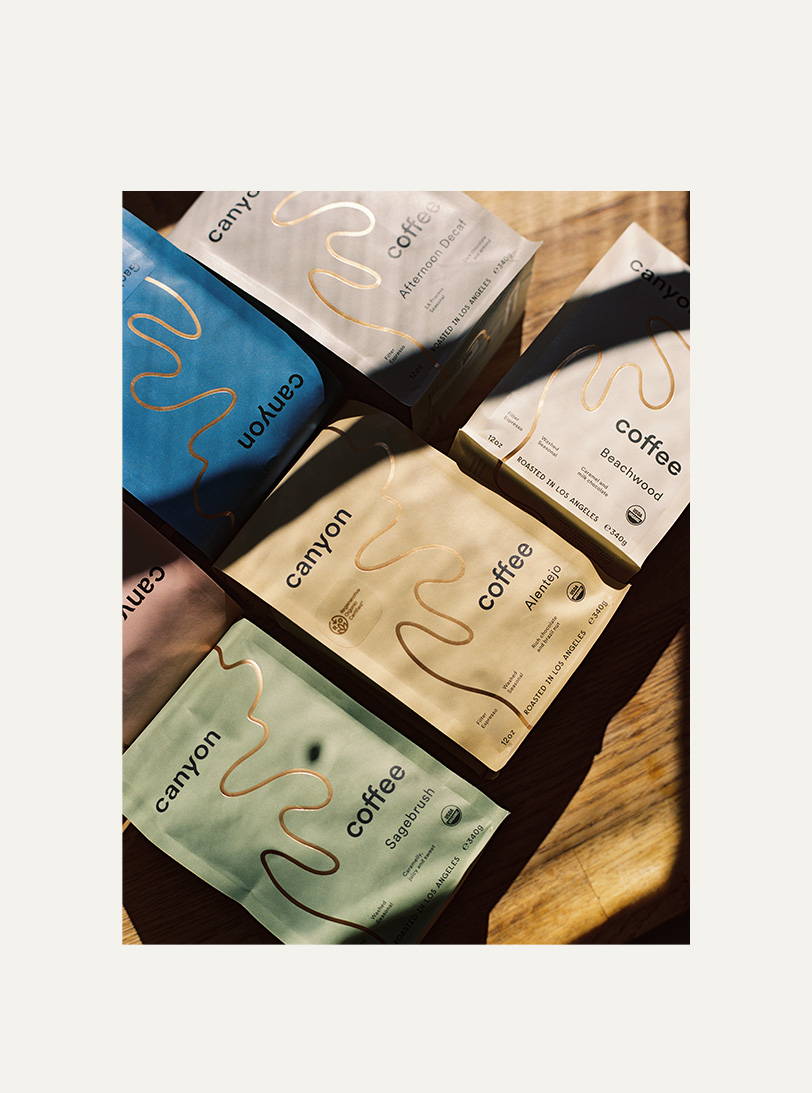LEARN — Why Single Origin
Since we started Canyon Coffee in 2016, we have been committed to sourcing and roasting Certified Organic and single origin coffees. We’ve talked about “Why Organic,” but why single origin?
First of all, what is single origin? The term itself is largely indicative: the contents of a bag of single origin coffee all come from the same place — one single origin. That can mean a single farm or a single co-op (which can imply a single community).
Another way to consider single origin is that it’s the inverse of a blend.
Blends are commonplace in coffee, and have been for years. Roasters have long blended multiple coffees together to achieve particular flavor profiles. One of the assumptions behind this is that it helps maintain consistency of a given flavor year-round.
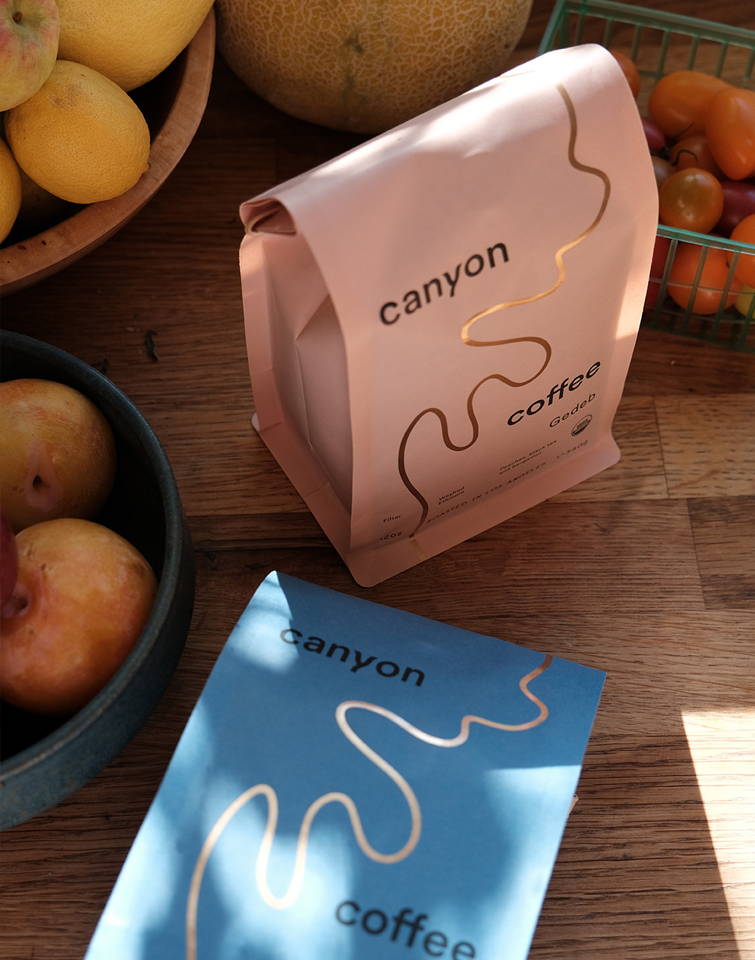
So why doesn’t Canyon blend? For a few reasons.
The coffee “beans” we grind up and brew are actually the seeds of the fruit, or cherries, from the coffee plant. Yes, coffee is produce!
As with all great produce, when it’s done right, we are ultimately tasting expressions of the plant’s terroir. To us, tasting those unique, terroir-driven flavors is a big part of what we love about coffee. We prefer for those flavors to stand out and shine in the cup, as a testament to the roots of the coffee and all the work that went into producing it.
So what about specific flavor and consistency? Well, we believe that you can have both through sourcing single origin.
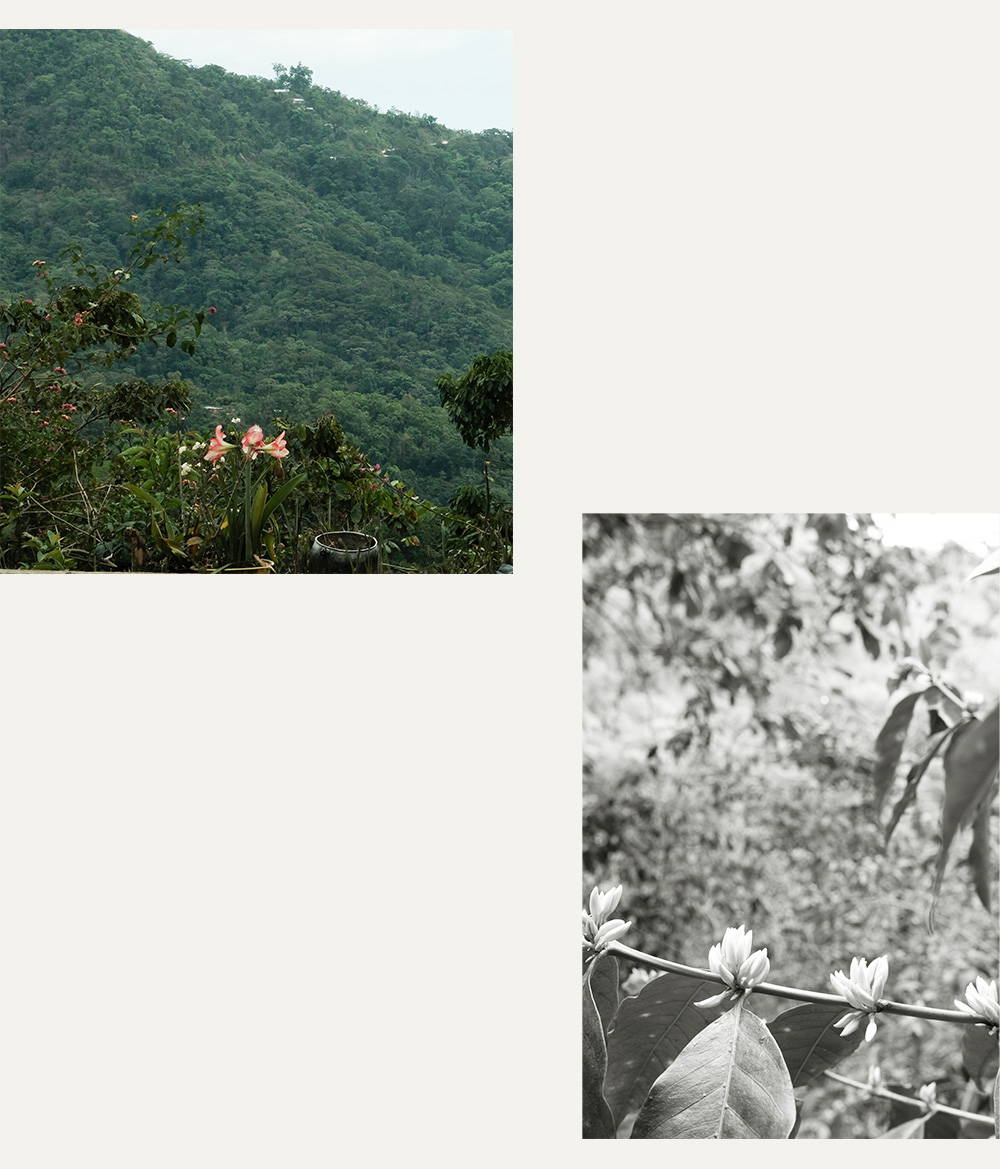
Flavor —
If we think of a particular flavor profile we enjoy — say, a clean, tea-like body with tropical fruit notes and hints of jasmine — there is a coffee out whose natural flavors match that description. Lots of them, in fact.
And those flavors are achieved purely through the terroir and processing of those particular cherries, without any blending or additives.
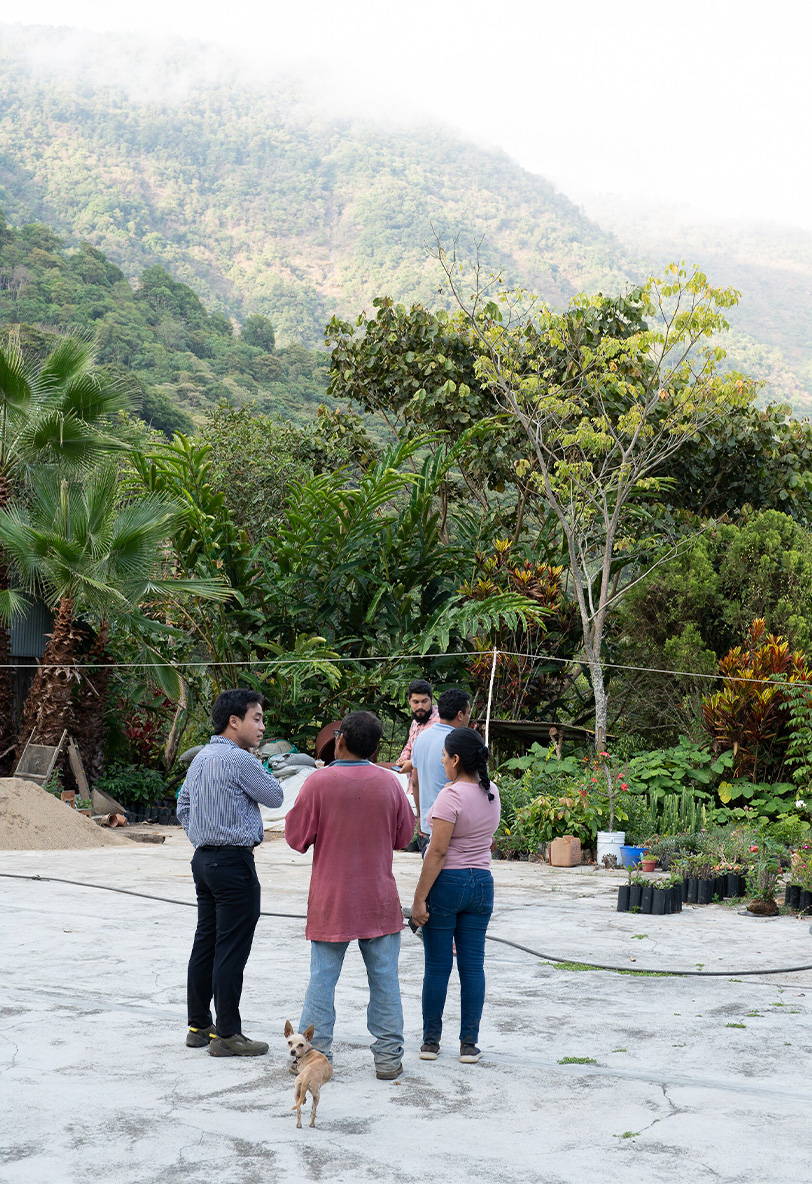
Consistency —
As roasters, we consider consistency of our roasting to be one of the most important aspects of our job. But even before we put a coffee into our roaster, we have to consider when a coffee was harvested, how it was processed, how it fared on its commute from origin to Los Angeles, and so on. Hold onto a coffee too long before you roast it, and you will begin to “taste age,” as we say.
How do we avoid this? By being seasonal.
As with all produce, coffee is seasonal. Most coffee-growing countries have one harvest a year, but some have multiple harvests. Colombia is one of them. This is one reason, among many, why Colombia has long been an important origin for Canyon. Because there are two harvests a year, we can typically purchase enough coffee from a given harvest to last us until the next one arrives around six months later. With diligence, this enables us to source a given coffee from one community or region year-round.
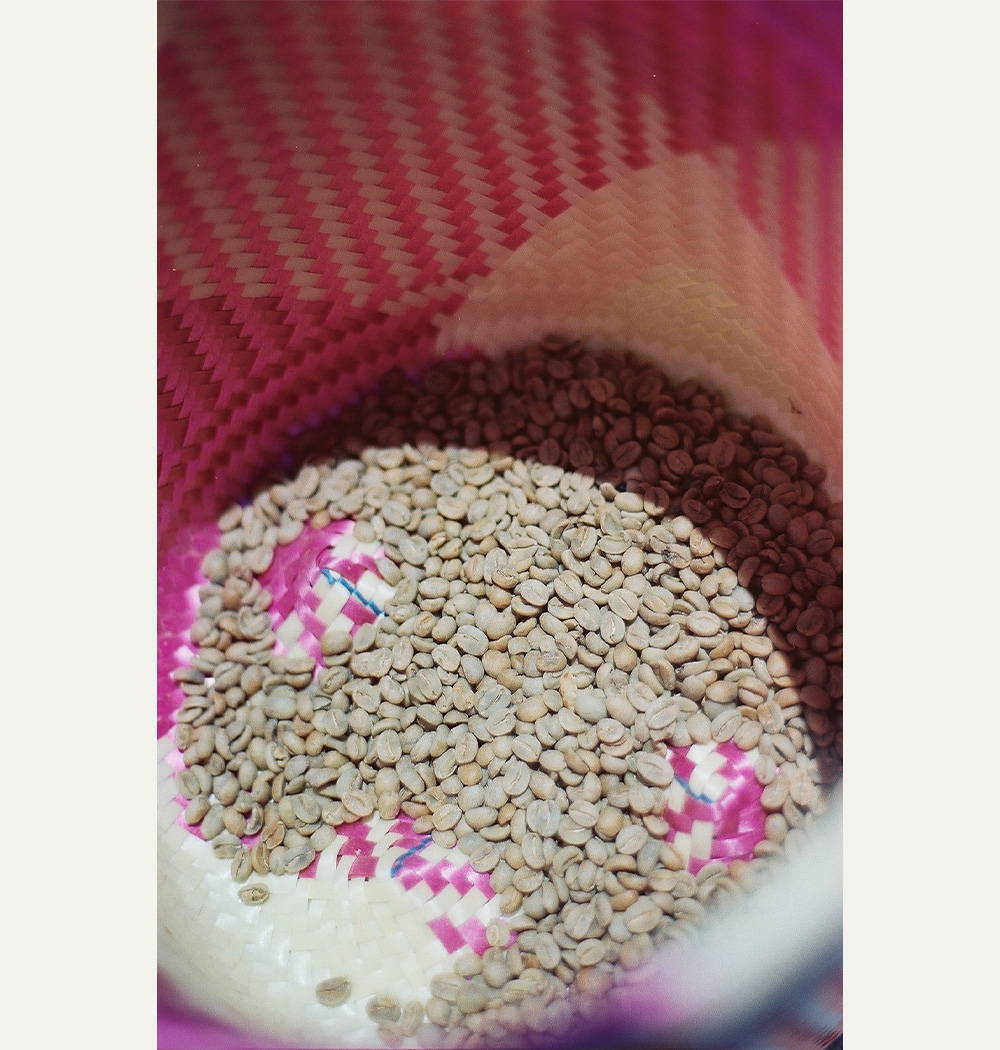
What about origins that don’t have two harvests a year, like Mexico or Peru? In these cases, we pride ourselves on sourcing coffees with similar profiles from different origins for year-round consistency in flavor.
When looking at our coffee menu, you’re actually looking at a series of flavor profiles that we love and have turned into products. Alentejo is our take on a classic, Italian-style espresso — it’s chocolatey, nutty and malty. Beachwood is caramel and chocolate, usually with some nice citrus-style acidity. Sagebrush is round and juicy, with stone fruit notes. And Gedeb is literally named after the region in Ethiopia where we source it from — typically strong stone fruit notes like peach, with floral aromatics and lime-like acidity.
With the exception of Gedeb, which is always from that region in Ethiopia, all of these coffees are likely to rotate between producers and origins to highlight when the best coffee available for that particular time in the year. When we’re doing our job well, the change is barely noticeable.

Traceability —
The work that goes into growing coffee is significant. The farmers we purchase from work year-round to care for and tend to their trees and produce high quality coffees, down to harvesting cherries by hand at the exact moment of peak ripeness. Their well-being is connected to their coffee trees — drought, severe weather events, and plant diseases can all have an on impact their plants, and in-turn on their lives. Often, farmers engage in selling other crops and side-businesses to diversify their income.
Given all the care that goes into producing their coffees, we feel it’s the least we can do to give credit where it’s deserved. When blending, the people who produced the coffee are often left out of the picture. Blends rarely even list the country the coffee was grown in. We prefer to showcase the farmers and the results of their work, by roasting bags of coffee that a grower can take full credit for. The byproduct of this approach also inherently leads to greater traceability. When you buy a bag of Canyon, you can always see the producer who grew the coffees on the associated product page on our web site.
Indeed, when speaking with our producer partners, they really appreciate that their names and co-ops are being put on the map.
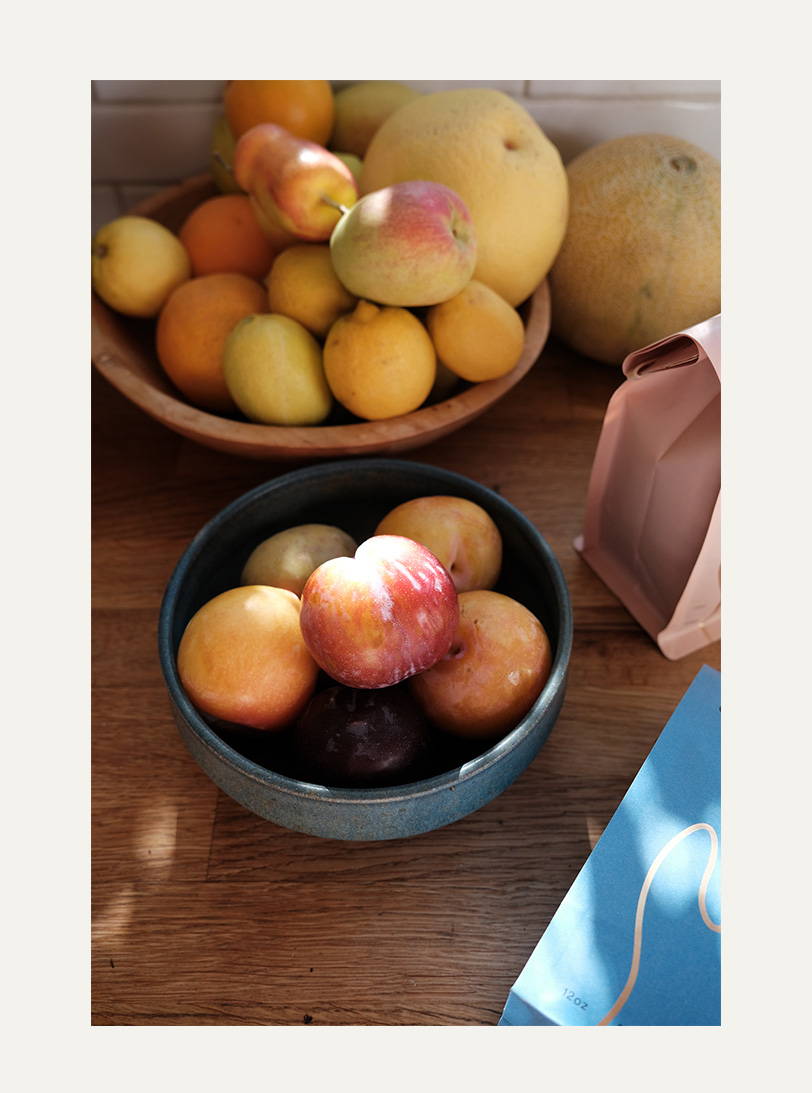
Concentrated Buying Power
Of course, giving credit is just one aspect of being a good business partner. It might go without saying, but the foundation of a relationship is the commercial exchange between parties. From the time we were a tiny roaster, we’ve had the intention of being a good partner to producers we purchase from. Being committed to single origin means that we have always concentrated our buying power. So rather than buying, say, a small amount of high quality Ethiopian coffee to round out a blend, we’ve always focused the full weight of our buying power for different coffees on single producers.
Sourcing and roasting exclusively single origin coffees is an approach we’re proud of at Canyon Coffee. But while it is our preferred approach (and how we like to do business), it’s not to say there’s anything wrong with blends. There are lots of great coffees out there, not to mention ways of processing, roasting and brewing. Being committed to single origin is simply the right approach to us, and the one we believe in.
